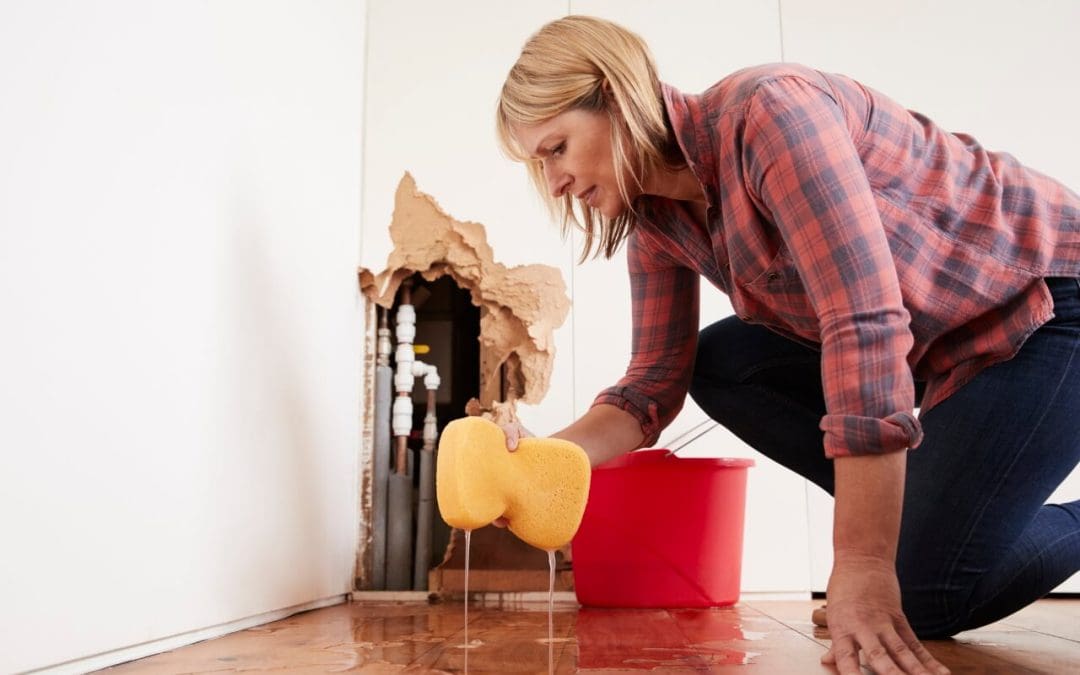Water damage can be a homeowner’s worst nightmare, leading to costly repairs and potential health risks. Fortunately, with a proactive approach, you can significantly reduce the risk of water damage in your home. Here’s a guide to help you prevent residential water damage and maintain a safe, dry living environment.
Regular Roof Maintenance is Critical to Prevent Residential Water Damage
Your roof is your home’s first line of defense against the elements, so keeping it in good condition is crucial. Regularly inspect your roof for missing or damaged shingles and address any issues promptly. Clogged gutters can also lead to water overflow and potential roof damage, so ensure your gutters and downspouts are clear. Consider having a professional roof inspection annually to catch any possible problems early.
Efficient Gutter and Downspout Management
Gutters and downspouts are vital in directing rainwater away from your home’s foundation. If they become clogged or damaged, water can pool around your home’s base, leading to foundation cracks and basement flooding. Clean your gutters regularly and inspect downspouts to ensure they are directing water at least six feet away from your home. Adding gutter guards can also help minimize debris buildup.
Proper Landscaping Practices
The grading around your home’s foundation should slope away to prevent water from accumulating near your home. Landscaping can play a significant role in managing water flow. Planting vegetation that helps absorb rainwater and installing drainage systems such as French drains can direct water away from your home and prevent pooling near the foundation. Regularly check that your landscaping does not obstruct water flow and adjust as necessary.
Checking and Maintaining Plumbing Systems
Leaky pipes and faulty plumbing can lead to significant water damage if not addressed quickly. Inspect your plumbing systems regularly for leaks and signs of wear, especially in areas like under sinks and behind appliances. Replace old hoses and fittings and ensure all joints are tight and secure. Consider installing water leak detectors to alert you to leaks before they cause extensive damage.
Maintaining Appliances to Prevent Residential Water Damage
Appliances such as washing machines, dishwashers, and water heaters can be sources of water damage if they malfunction. Regularly inspect these appliances for signs of leaks or wear and tear. Ensure that hoses are in good condition and replace them if they show any signs of damage. Installing a drip pan under appliances that use water can help catch leaks before they cause significant damage.
Sealing Windows and Doors
Proper sealing around windows and doors can prevent water from infiltrating your home during heavy rain. Check and maintain weatherstripping around these areas to ensure a tight seal. Inspect caulking regularly and reapply it as needed to fill any gaps or cracks that could allow water to seep in.
Addressing Basement and Crawl Space Concerns
Due to their proximity to the ground, basements and crawl spaces are particularly susceptible to water damage. Ensure that these areas are properly waterproofed and ventilated. Installing a sump pump can help manage groundwater and prevent flooding. Regularly check for signs of moisture or mold and address any issues promptly to maintain a dry environment.
Responding to Residential Water Damage Promptly
Despite your best efforts, water damage can still occur. To prevent further issues, it’s crucial to address any signs of water damage or leaks. If you notice water stains, mold growth, or a musty odor, take action right away to mitigate potential damage.
Following these preventive measures can significantly reduce the risk of water damage in your home. Regular maintenance, proactive inspections, and timely responses to issues are key to safeguarding your home from the devastating effects of water damage. Stay vigilant and take the necessary steps to protect your property and ensure a dry, comfortable living environment.
FAQ
What are the common causes of water damage in homes?
Common causes include roof leaks, faulty plumbing, clogged gutters, foundation cracks, and appliance malfunctions. Regular maintenance and inspections can help prevent these issues.
How often should I inspect my home for water damage?
It’s advisable to inspect your home for water damage at least twice a year, ideally in the spring and fall. Additionally, conduct inspections after heavy rainstorms or any events that could impact your home’s water systems.
What should I do if I discover water damage?
If you discover water damage, address the water source immediately to prevent further damage. Clean and dry the affected area thoroughly, and consider contacting a professional if the damage is extensive or involves structural issues.
How can I prevent water damage during heavy rain or storms?
Ensure that gutters and downspouts direct water away from the foundation. Check that the grading around your home slopes away from the foundation to prevent water pooling. You might also consider installing a sump pump with a backup power source to manage potential flooding. Reinforce window and door seals to minimize water intrusion and keep emergency supplies, such as sandbags, on hand if you live in a flood-prone area.
Jamie Schaefer, Professional Home Inspector, offers inspection services in Central Florida and the New York Metropolitan Area. Contact us to schedule an appointment.

